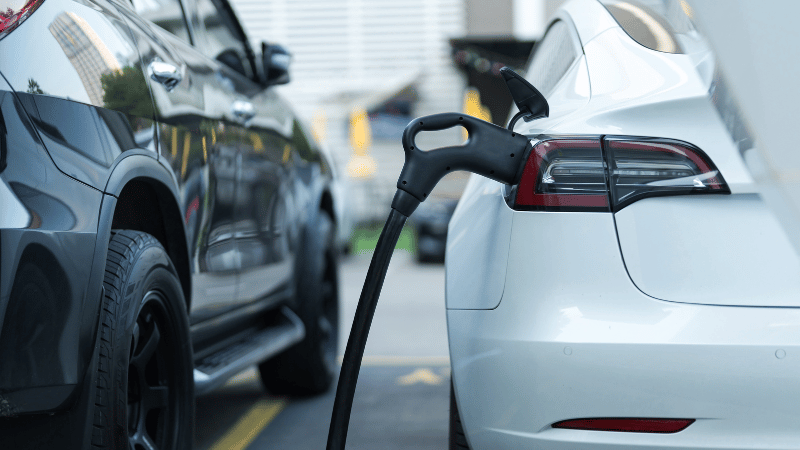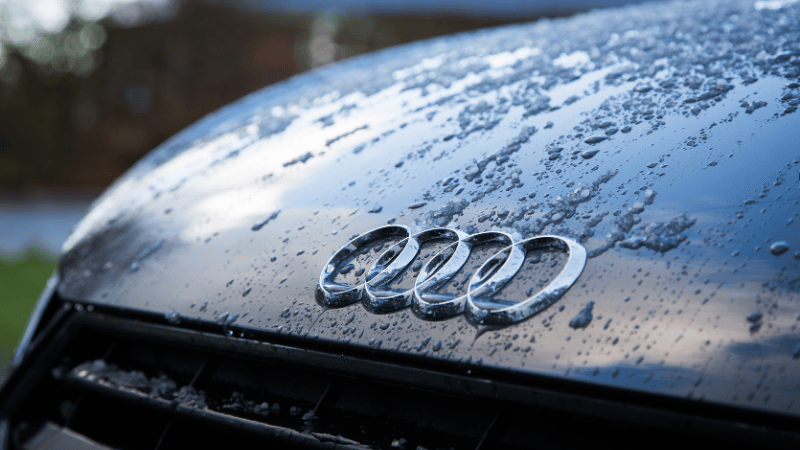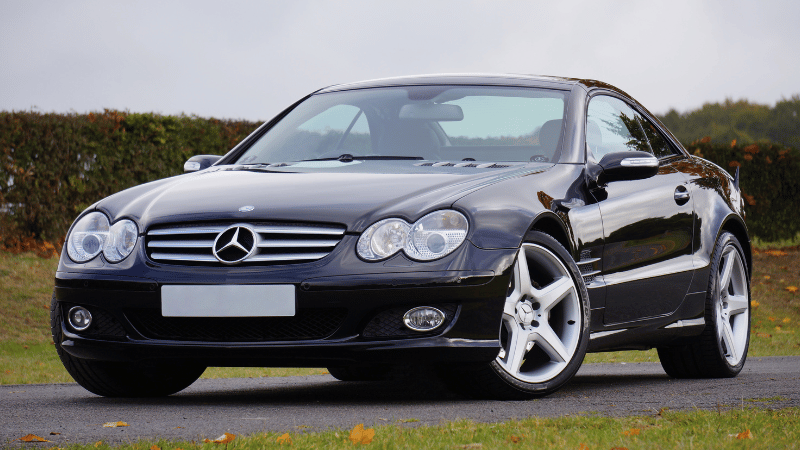Categories
How Does PCP Actually Work?

Personal contract purchase (PCP) has become the country’s most beloved way to finance a new car, and there’s a good reason for that - it lets you get your hands on a shining new car for the lowest possible monthly repayment.
How does it do that? At Clifton Private Finance, we have the answer!
*Note: minimum loan size of £50,000 for individuals, and £25,000 for business purchases
The Origins of PCP
Finance has been around a very long time, but PCP finance not so much - at least, not in relative terms. Loans have been around for about four thousand years - some very ancient references to loans exist in the Babylonian text known as the Code of Hammurabi, which sets down the laws that governed that ancient civilisation. Both interest rates, and loans can be found in its pages (OK, it doesn’t have pages, it was carved on stone, but you know what we mean - look at rule 100!).
In comparison, the 1990s seems extremely recent, and that’s when PCP car finance came about.
It was offered by Ford under the simple term ‘options’ and was such a success that now everyone is doing it - and we mean everyone! According to the Finance and Leasing Association, 80% of new car finance are PCP agreements. That’s a lot!
What’s so great about this ‘new’ car finance deal, then? The answer: flexibility and cost-effectiveness.

How Does PCP Work?
Personal Contract Purchase (PCP) works by offering low initial and monthly payments, with a large final "balloon payment" to own the car. It provides flexibility to buy, return, or upgrade the vehicle at the contract's end, making it ideal for those prioritising affordability and access to newer cars over immediate ownership.
Let's break it down in more detail...
Buying a car is expensive. For most people, a car purchase is the second most expensive thing you’ll ever buy (after a house).
It’s so expensive that it’s no longer expected that you come up with the cash upfront.
The biggest problem with buying a new car is depreciation. We’ve all heard the idea that a car halves in value as soon as you drive it away, and though that’s not exactly true, it’s not all wrong either.
New shiny cars are worth lots of money, and the older, more worn in, and dirtier they get (both inside the engine and under the front seat), the less people want them, and the more value drops. This, as you probably know, is called depreciation - and you pretty much have to suck it up.
Let’s look at these factors...
If a lender is willing to lend you money at a low interest rate if the risk is low, as a borrower we need to make it seem as low risk as possible.
How about we say to them: ‘OK, if we don’t pay you back, you can take our car and sell it!’? That seems to be a good way to mitigate risk; after all, what have they got to lose? You make payments, they get their money back; you don’t make payments, they sell the car and get their money back. Perfect.
This, of course, is called repossession.
And only, depreciation stops it from being perfect.
There’s only one way to solve this: you absolutely have to pay at least the depreciation each month on the loan.

The PCP Deposit
The problem with this scenario is that depreciation is quite significant.
When you’re also trying to pay off the balance of the loan and some interest, this can add up to a pretty sizeable monthly repayment - it could even be off-puttingly large.
One way to solve this is to have you pay a large chunk of the car off upfront.
If, say, you pay for 10% or so of the car before you start to make loan repayments, then sure, the repayments will be large, but you’ll probably stay ahead of the depreciation and everything will be OK. In fact, this is the exact model for hire purchase.
But while many PCP providers do offer the option to provide a 'PCP deposit' in your contract to reduce your monthly payments, it's generally the exception to the rule, as it means a new car can only be bought by people who have saved up a lot of money for that deposit.
If depreciation is the absolute minimum you can pay to make the deal work, then depreciation must be all you pay to obtain the lowest monthly repayment (plus a little for interest, to give the lender an incentive to lend the money in the first place, let’s not forget).
And that, is PCP! No need for an upfront deposit, and the smallest monthly payments possible. Job done!
(Or is it?)

How PCP is Flexible
If you’re paying only the depreciation on your car, you’d be paying for it forever. After all, a car can keep going for 20 to 30 years before it’s actually worth nothing.
That seems like a very stretched car finance deal that’s not great for anyone.
Herein lies the other key feature of PCP - flexibility.
From the lender’s perspective, if the options are to either give up, or buy the car, why not just provide both to the borrower?
After all, it makes little difference to them: if the borrower’s decision is to buy the car, then great, sell it over and the whole thing is completed; if, however, they don’t want to (or can’t) do that, then they can give it back and the lender can sell the car. Win-win!
There’s only the question of the numbers to answer - how much is the car going to be worth, and how can the monthly repayments properly cover the depreciation in the meantime?
This is an estimate, based on lots of experience and calculation, of what the car will be worth once the PCP agreement comes to an end.
By setting a GMFV, the finance company can do all the needed maths as such:
It’s simple and effective.
Now, the choice can be offered: when the PCP agreement comes to its end and you’ve made all those monthly payments to cover the depreciation, do you want to:
- buy the car for the GMFV that was agreed at the beginning
- or do you want to hand the car back and close the agreement (at which point, the finance company will sell the car to clear the balance)?
It’s up to you, and you don’t have to make a decision until the end of the agreement.

11 More Things to Know About PCP
In truth, PCP is not quite that simple. Here are 11 other things that add complexity that have to be considered:

Ownership
Throughout the PCP contract term, the car remains the property of the finance provider. This means you cannot sell it or refinance it in other ways without agreement.

Creditworthiness
A PCP agreement is a legal finance contract and the finance provider will undertake credit checks and affordability tests to check your status and financial position. People with bad credit, low incomes, or high existing debt obligations may have their PCP applications rejected or find that the interest rates on offer are higher than expected.

Interest
Adding interest is the method finance companies use to make a profit on their loan. It’s only fair - they’re lending you money so they have to get something back! Interest rates on PCP agreements are competitive and low, but they’re not often zero, and will add a little to that depreciation calculation when working out the monthly payment.

Initial Payments / Deposit
Not all PCP agreements have no upfront payment. Initial payments for PCP do tend to be incredibly flexible, giving you the choice of how much to pay at the beginning of the contract, but it is often worth doing so if you can afford it. The more you pay in an initial payment, the lower the overall loan, making monthly payments lower and the amount of interest accrued smaller.

Part Exchange
If you already own a car and are looking to sell it on, many dealers will take that car in part exchange, offsetting its value with the PCP finance as an effective initial payment.


Upgrading
When it comes to the end of your PCP agreement, you might want to swap the car for a new one, upgrading your vehicle. This upgrading process is actually a case of ending the first agreement by handing back the car and taking on a completely new one, but if you upgrade with the same finance company a lot of the work is done in the background, making it seem invisible. In these cases, upgrading can seem to be an additional option at the end of the term.

Mileage Limitations
The amount you drive your car has a significant affect on the depreciation, so annual mileage limitations are essential in properly calculating GMFV and monthly payments. Going past these limitations will incur end-of-contract fees that can be quite sizeable. It’s important to estimate your mileage as accurately as possible, and to contact the finance provider to alter the agreement if you find yourself regularly going over your mileage limits and avoid more expensive fees.

Wear and Tear
You are expected to look after the car (again, a major factor in determining depreciation). At the end of the contract, a car that has suffered more than reasonable wear and tear will incur fees.

Possible Return
There’s a chance that the end market value of your car (the real value if it were sold) is higher than the GMFV. In these cases, many PCP agreements reimburse you accordingly.

Insurance
With a PCP agreement, you must always have fully-comprehensive insurance to cover damages. GAP insurance is an additional specialist insurance that ensures that any insurance pay out in case of a total loss matches any remaining balance on your PCP agreement - this is recommended in almost all cases of PCP and can be paid as a relatively small one-off fee at the time of obtaining the contract.

Maintenance
Though the car is owned by the finance company, its maintenance and any repairs are your responsibility. In some cases, the finance company will dictate that only accredited garages or dealerships may undertake any maintenance and repair work.

Apply with Clifton Private Finance
If you’re looking for the best rates for PCP finance, speak to a car finance expert at Clifton Private Finance. We’re here to discuss your car finance needs with you and help you make the right decision. To get on the road with a new car, give us a call today.
*Note: minimum loan size of £50,000 for individuals, and £25,000 for business purchases















